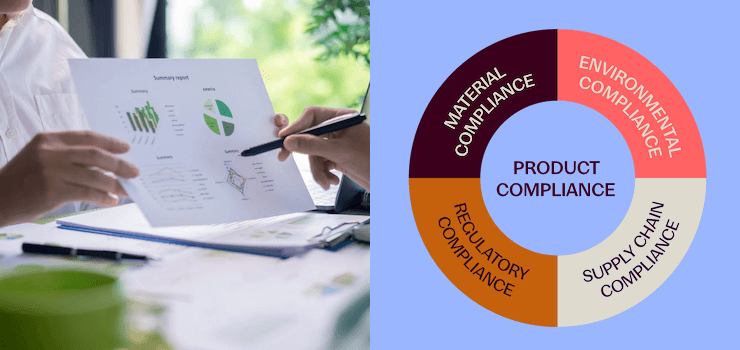We are all aware that SCIP reporting requires a considerable effort for almost all affected companies. Thus, every form of facilitation is helpful, such as the IMDS system presented at the IMDS & PRODUCT CHEMICAL COMPLIANCE CONFERENCE 2020, hosted by AIAG on October 13th and 14th. Still there are time consuming manual steps left, that can be eased with iPoint’s SCIP connector.
Implementation of SCIP relevant properties in IMDS release 13
With IMDS Release 13 (available in March 2021) it will be possible to include SCIP-related data to a dataset, in particular a declaration of Production in European Union, TARIC code information and Safe Use Instructions. Since SCIP database requires the description of a material (or mixture) category at the so-called concern element level, it will be possible to add one or more material categories. This selection is aided by a mapping of current material classifications to the ECHA category options.
These steps, as well as the upload to SCIP database need to be done individually for each dataset in IMDS.
SCIP reporting efforts using IMDS system
However, SCIP reporting within the IMDS system requires two significant steps:
- Determination of SCIP reporting necessity (SVHC analysis)
- Data collection, entry, and submission of dossiers for these datasheets.
Assuming an effort of 10 minutes for the SVHC analysis per datasheet and 30 minutes to do the submission for a complex object, SCIP reporting will still take around 750 hours to complete in an average case! (Assumption: 20.000 MDS, 50% of these put on EU market, 15% have at least one SVHC > 0.1% w/w).
How to ease the burden with iPoint
One of the biggest challenges in SCIP reporting is the handling of a large number of products to be reported. iPoint’s SCIP connector has been developed to enable this bulk processing of datasets. Based on our established functionalities SVHC analysis can be done automatically across all products as well as
- Roll-up of results for an easy overview
- Bulk definition of products put on EU market (and therefore SCIP relevance)
- Bulk maintenance of BOMs and article categories and other SCIP mandatory properties
Data collection from suppliers is necessary to provide all mandatory data of a SCIP dossier – and to meet the deadline of January 5th, 2021. This will have to happen before the options are available in IMDS. For this reason, iPoint allows to leverage default settings and ECHA waiver options as well as bulk import of data in order to successfully complete the initial SCIP submissions on time. Once the supplier data is available via IMDS, it can be used to easily update dossiers from within iPoint’s SCIP solution. Last but not least, iPoint supports the bulk submission of datasets and simplified notification option, making reporting fast and straightforward for a large number of products and legal entities.
This combination of automation and bulk handling options will reduce efforts to under one hour for the example above.
Interested in further details of iPoint’s SCIP reporting solution: contact iPoint at marketing@ipoint-systems.com or download our SCIP Whitepaper and watch our SCIP Videos.






